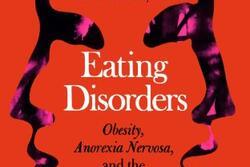Rehearsing For a Better World
As I stood in my kitchen on the night after the election, watching protesters march down the streets of New York city, my initial feeling was a surge of hope. For me, the anti-Trump protests across the country were a sign that many people are still willing to struggle for equality and acceptance in the most American way possible, by using their freedom of speech. However, I learned at school the next day that many people didn’t share my feelings of optimism.
Many of my peers claimed that unity is the most important thing for the country at the moment, and while I disagree with that, I still left school that day feeling a lot less certain about my feeling towards the protests than I had the night before. It’s true that national unity is important, but does it have to come at the cost of our most fundamental values? As I struggle with the seemingly contradictory ideas of morality and compromise, Bonna Devora Haberman’s work to bring together Israeli and Palestinian youth has been a source of clarity and comfort for me.
Haberman was most well known for her work with Women of the Wall, where she advocated for pluralism and equality for Jewish women in Israel, and was arrested in 2012 for praying at the Western Wall while wearing a prayer shawl. She was passionate about feminism, zionism, and the environment. She wrote two books exploring Judaism and Israel in the context of the Israeli-Palestinian conflict, and female leadership in the Jewish community. But out of all the things that made Haberman an amazing woman, the thing that has stuck with me the most as I struggle to come to terms with the results of the election, is her youth theater program, YTheater.
YTheater is a program that Haberman co-founded in the hopes of finding a way for Israeli and Palestinian youth to work together and build a community. Its homepage reads, in Arabic, Hebrew, and English: “We are Palestinians and Israelis. Our lives and world-views usually exclude one another. We agree about almost nothing. We are positioned in opposition.” Considering the current political climate in the United States, this idea of two completely polarized groups who often refuse to see one another’s point of view seems all too familiar.
What is not familiar enough is YTheater’s core philosophy: the idea that disagreeing groups do not have to hate each other, but instead can work together to communicate their problems and frustrations in a constructive way. The program seems to encapsulate the idea of unity that my classmates seemed so determined to protect. Unlike many of my classmates, however, Haberman never denied the existence of tension between Israelis and Palestinians. She admitted that while the members of YTheater agree with one another artistically, they share almost none of the same political or moral views. The goal of YTheater is not to change conflicting opinions, but rather to show that people can disagree and still come together to create something important. Likewise, the discord throughout our country does not symbolize the end of America as a unified republic, as many of my classmates suggested. Instead, I believe that many of the protestors exemplify Haberman’s ideas by working towards a more peaceful world without giving up on their own values in the face of others who do not share them.
Haberman provided a forum for young people that allowed for differing opinions, but always prioritized understanding and mutual respect above all else. In the context of her work at YTheater, Women of the Wall, Hebrew College, and the many other organizations to which she contributed, this version of unity did not devalue the incredible power of protest, but rather celebrated it as a peaceful catalyst for change.
Watching the protests on TV after the election, I couldn’t help but relate to the young protesters who seemed to be groping blindly for the right path forward. I will be the first to admit that I do not know what that path is. I do know however, that Haberman’s vision for Israel is similar to the vision I have for America. If the youth of America can adopt Haberman’s version of advocacy, which was fueled by hope rather than anger, then even Donald Trump’s presidency may not impede our progress toward a more just world.
YTheater's mission states: “Creating theater is our shared language; the stage is our meeting point. In a region raw with conflict and pain, we rehearse for a better life together.” Now more than ever, Americans must find a shared language to discuss both concerns and hopes for our future. I will continue to grapple with the results of this election in the midst of those who disagree with me, and I hope that as others do the same, they will be able to draw on Haberman’s model of unity without conformity.
This piece was written as part of JWA’s Rising Voices Fellowship.








lots of insight in this post,thank you for sharing